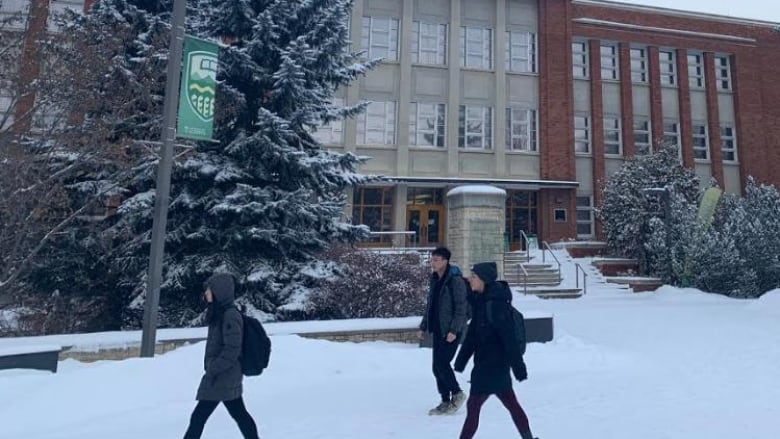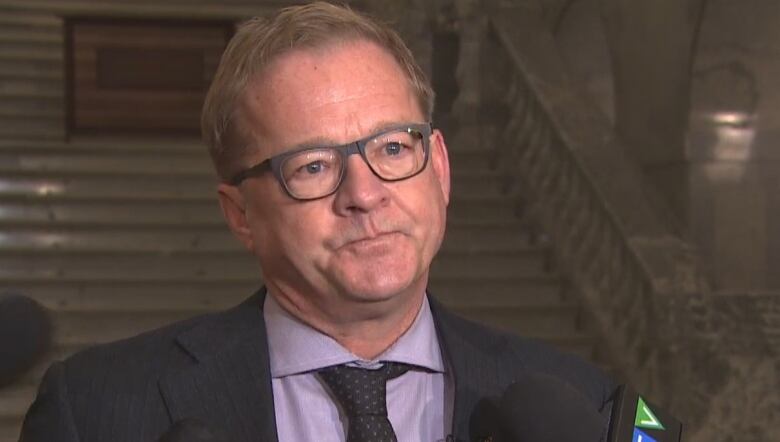Alberta universities, colleges face varied government funding cuts
Some institutes hit harder in 2020 budget

The University of Alberta, Grande Prairie Regional College and Fort McMurray's Keyano College face the biggest post-secondary funding cuts next year, government documents show.
As the Alberta government aims to reduce funding to the province's 26 post-secondary institutions by 20 per cent in the next three years, the changes are hitting some schools harder than others.
Fort McMurray's Keyano Collegewill receive 9.5 per cent less provincial funding in the 2020-21 budget and Grande Prairie Regional College will see its grant drop by 9.1 per cent.
Meanwhile, Medicine Hat College will lose less than two per cent of its public funding next year. Edmonton's Concordia University will experience a 1.1 per cent dip.
The government said the disparate cuts aren't haphazard. The decisions were based on a thorough analysis of each school's finances, demographics and abilities to raise their own revenue.
"Making reductions like these isn't easy, and we didn't come to these decisions lightly," said Laurie Chandler, press secretary for Advanced Education Minister Demetrios Nicolaides. "But our province is broke, and we are fulfilling the mandate Albertans overwhelmingly elected us to do."
Spending out of line
Citing a 2019 review of Alberta's spending, the provincial government cut funding to the ministry of advanced education by six per cent for the coming year.
A blue ribbon panel led by former Saskatchewan finance minister Janice MacKinnon found Alberta was spending about $10,300 more per post-secondary student than the average in Quebec, Ontario and B.C.
Chandler said there are no benefits to those higher expenses graduation rates haven't improved and Alberta still has a relatively low number of students enrolled in post-secondary programs.
Using data from institutions across the country, the government compared how much funding each Alberta school was receiving per student with other similar Canadian colleges or universities.
While each University of Alberta student cost government coffers an average of $17,000 a year in 2016-17, the University of Toronto received about $7,600 for each student, the numbers show.
Northern Alberta Institute of Technology received about $16,600 for each student that year, yet the British Columbia Institute of Technology got $8,931.
And where Keyano College received $42,600 per student, Interior B.C.'s Selkirk College was getting $12,000 per student.
The 2016-17 fiscal year was the most recent data available for all the institutions' finances and demographics, she said.
"We need to get our spending in line, otherwise this is not going to be sustainable," Chandler said. "We'll just continue to pay the bond ratings and the bond agencies billions of dollars, where that money could be put into services that we actually need."
'Teaching will suffer,' NDP says
The government made funding reductions to each school based on how far they deviated from the average, while trying to keep them viable, she said.
NDP advanced education critic said the differential cuts defy logic and put smaller institutions at risk.
Colleges such as Keyano have higher costs because they are geographically isolated and serve a diverse population, he said.
Some of the reductions also compound cuts in the 2019 budget, Eggen said.

In October, Bow Valley College and MacEwan University were hit hardest, with 7.9 per cent funding cuts.
"They're just cutting as far as they can get away with, and as a result, I think students will suffer," Eggen said. "Teaching will suffer, and we lose a major tool we can use to diversify the economy in our province."
In combination with new performance-based funding, which begins in April, successful institutions could be doubly hit, Eggen said.
The government wants post-secondary institutions to find more of their own money.
Alberta institutions are allowed to raise average tuition fees by seven per cent each year. Federal research funding, donations and selling food and parking are other sources of revenue.












_(720p).jpg)


 OFFICIAL HD MUSIC VIDEO.jpg)
.jpg)



























































































